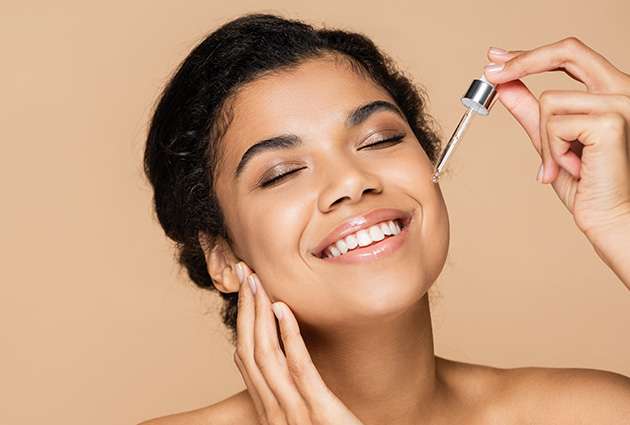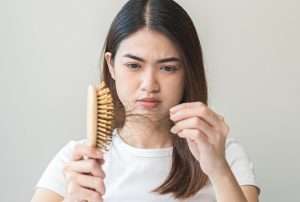Best Hair Growth Supplements for Fuller Hair

While having really long hair is lovely, maintaining it requires a lot of work. The latter is less expensive but requires a lot of patience and willpower, both of which are frequently lacking.
There are a few things you can do to speed up the process if you want to finally get rid of your bowl cut or grow an all-natural ponytail that skims your butt while you’re by yourself. To start, mentally get ready to wait a lot—even more than you already are.
To learn more about the vitamins and nutrients that affect your hair and how to keep them under control, read the blog.
In this blog, we have discussed which are the best vitamins and supplements for hair growth and thickness.
Hair supplements
Biotin
The vitamin B7 biotin, also known as keratin, stimulates keratin production to promote follicle growth. The most common type of biotin deficiency, known as biotinidase deficiency, is relatively uncommon. This vitamin can be found in a wide variety of foods, such as eggs, meat, fish, nuts, eggs, sweet potatoes, and seeds.
For adults, a daily intake of 30 micrograms is advised.
Vitamin A
The part of the body that grows the fastest are hair cells. Therefore, it stands to reason that vitamin A is the ideal fuel for that growth. Your body produces sebum as it absorbs vitamin A. That oily substance moisturises your scalp and keeps your hair follicles strong by moisturising both. You might experience hair loss if you don’t get enough vitamin A.
You should eat foods high in beta-carotene, which is converted into vitamin A, if you want to consume more vitamin A. Beta-carotene-rich foods include kale, spinach, sweet potatoes, pumpkin, and carrots. Additionally, it can be found in milk, eggs, yoghurt, and cod liver oil.
Up to 900 mcg of vitamin A per day is advised for men and 700 mcg per day for women.
Vitamin C
The part of the body that grows the fastest are hair cells. Therefore, it stands to reason that vitamin A is the ideal fuel for that growth. Your body produces sebum as it absorbs vitamin A. That oily substance moisturises your scalp and keeps your hair follicles strong by moisturising both. You might experience hair loss if you don’t get enough vitamin A.
You should eat foods high in beta-carotene, which is converted into vitamin A, if you want to consume more vitamin A. Beta-carotene-rich foods include kale, spinach, sweet potatoes, pumpkin, and carrots. Additionally, it can be found in milk, eggs, yoghurt, and cod liver oil.
Up to 900 mcg of vitamin A per day is advised for men and 700 mcg per day for women.
Citrus fruits, peppers, strawberries, tomatoes, and guavas all contain vitamin C. You will need to include these in your diet or take a vitamin C supplement because your body cannot produce it.
Adult men can consume up to 90 milligrammes of vitamin C daily, while adult women can consume up to 75 milligrammes. A vitamin C overdose may cause kidney stones, heartburn, cramps in the muscles, fatigue, and skin flushing.
Vitamin D
Conditions like alopecia, female pattern hair loss, and excessive shedding can all be brought on by vitamin D deficiency. People 65 and older are more likely to experience these depletions.
Fatty fish, cod liver oil, fortified foods (cereal, eggs, bread, yoghurt), and mushrooms can all help you consume more vitamin D. As an alternative, you could enjoy some midday sunlight.
The recommended daily allowance of vitamin D for adults is 600 IU. A vitamin D overdose may cause nausea, weight loss, dizziness, and problems with heart rhythm.
Vitamin E
The antioxidant power of vitamin E is equivalent to that of vitamin C. It implies that it can reduce oxidative stress by restoring equilibrium to the free radicals’ electron level. People who suffer from diseases like Crohn’s or cystic fibrosis are more vulnerable to vitamin E deficiencies.
Hair loss can be effectively treated with vitamin E. According to a small study, people who took vitamin E supplements for eight months saw a 34.5% boost in hair growth. Sunflower seeds, spinach, avocados, and almonds all contain vitamin E.
If you decide to take supplements, the daily recommended intake is 15 milligrammes.
Iron
Hemoglobin, a protein found in your body’s red blood cells, is made with the help of iron. These cells help your body’s cells grow and repair by distributing oxygen to all of the cells. Women are more likely than men to experience hair loss as a result of an iron deficiency.
Foods like eggs, red meat, lentils, spinach, oysters, and clams all contain iron. Take an iron supplement if your doctor advises it.
A 45 mg daily intake of iron is advised. Remember that consuming too much iron may cause constipation, stomach discomfort, and vomiting.
Zinc
Zinc encourages hair growth and maintains the health of the oil glands that surround the hair follicles. Hair loss could occur if you don’t get enough zinc. The most vulnerable groups to zinc deficiency include heavy drinkers, Crohn’s patients, expectant or nursing mothers, and people with chronic kidney disease.
Many everyday foods, including beef, spinach, wheat germ, pumpkin seeds, oysters, and lentils, contain zinc. Men should take 11 mg of iron daily, while women should take 8 mg. If you take too much, you might experience headaches, cramps, and loss of appetite. Your good cholesterol may also decrease as a result.
Supplements for hair growth
Your confidence can be seriously hampered by bad hair days. However, having a good hair day is a blessing. What if good hair days never end? What if you could get rid of dullness, frizz, hair fall, and other things that get in the way of you flaunting that perfect hair flip forever?
What advantages do hair growth supplements offer?
Dietary supplements known as hair vitamins make this claim. For instance, well-known manufacturers suggest that their goods may promote hair growth, lustre, thickness, and strength.
Vitamins C and E, Biotin, collagen, folic acid, and omega-3 fatty acids are just a few of the ingredients present in a wide range of commercially available products.
They might also contain components like ginseng and ashwagandha, which some people believe can help strengthen their hair.
Unhealthy hair can be identified by hair loss or thinning, lack of growth, roughness, fragility, brittleness, and dullness.
In many situations, changing your diet and lifestyle will help you have healthier hair. The health and integrity of your hair may be improved if you consume enough vitamin A, vitamin B12, vitamin C, vitamin D, vitamin E, biotin (B7), iron, selenium, and zinc.
Hair development is especially dependent on protein, which is the basic component of hair. Dietary deficiencies of nutrients like B vitamins, iron, and vitamins C and D have all been linked to hair loss, poor hair growth, and thin hair.
Extremely low-calorie and fat diets, like some weight loss plans, as well as those that forgo whole food groups, like veganism, can encourage increased hair loss and brittle, unhealthy hair.
Working with a doctor is essential to identifying any underlying causes of hair loss or a lack of growth.
How effective are hair growth supplements?
Although some supplements have been linked to improving hair health, most studies have found that these supplements are only helpful in people whose nutritional deficiencies are the root of their hair problems. If you are looking for hair growth supplements for enhancing your hair growth and reducing hair fall, you should check out Women’s Daily Hair Care Supplement For Hair Fall and Hair Thinning which is a blend of 24 hair essential nutrients that strengthens hair health by reducing thinning and improving hair volume.
FAQs
1. Which nutrients are essential for hair growth?
Biotin, Vitamin A, Vitamin C, Vitamin D, Vitamin E, Iron, Zinc are essential for hair growth.
2. Which factors affect hair health?
Age, genetics, hormone production, health issues, food, stress, and hair products are just a few of the many factors that can affect the health of your hair. This makes identifying the root cause or causes of any issues difficult.
3. Why should I consider hair growth supplements?
Your scalp will receive all the nutrients it requires if you take daily hair growth supplements. These improvements are typically designed to accommodate a variety of hair issues and hair types. These will help your hair grow more quickly, become thicker, smoother, and shiny. Here are some of the main explanations for why using hair growth supplements over time will be advantageous for you.
4. How is Plix Hair Care different from biotin or other hair supplements?
It is fueled by a combination of 24 essential nutrients for hair, not just one or two, which together work to address the various root causes of hair loss, such as stress, nutrition deficiencies, poor lifestyle choices, and metabolism, and help to improve overall hair health.
5. How does Plix Hair Care work?
Stress, UV exposure, hormonal imbalance, inflammation, and many other factors are the root causes of unhealthy hair. The product is made up of strong ingredients that work together to alleviate the effects of these factors and enhance the health of your hair as a whole.
6. When can I expect real results?
People may experience different results. You might experience less hair breakage after 1-2 months. You might see changes in hair volume and growth in two to three months. Your hair may become thicker and stronger in three to four months. To ensure effective and long-lasting results, you must be consistent with your supplement use.
7. What are the ingredients of Plix Hair Care? How to consume these supplements?
It is fueled by a combination of 24 essential nutrients for hair, not just one or two, which together work to address the various root causes of hair loss, such as stress, nutrition deficiencies, poor lifestyle choices, and metabolism, and help to improve overall hair health.














